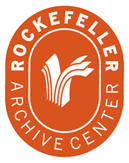Last week I attended the #a11yTO Conf in Toronto. #a11yTO promotes digital inclusion for the design and development communities in the Toronto area, and the conference brings together accessibility experts and disability advocates from around the world to present on topics ranging from legal strategy, standards, and values to more technical talks on design and web development.
First of all, “a11y” is A-eleven-Y, which is a short-hand numeronym for “accessibility” commonly used on Twitter. The conference was part of a week of events including:
- #a11yIRL on accessibility in the built environment
- #a11yTO Conf on digital accessibility
- #a11yTO Gaming on accessible gaming and game development
I did not attend the IRL and Gaming events, but was present for two full days of talks that comprised the #A11yTO Conf. I’ll share some thoughts from my perspective working as an information professional in the worlds of archives and UX.
Building community
While the group is based in Toronto, the conference included participants and attendees from around the world. The planning and care that went into the event was really remarkable, and in a field where practitioners can often feel isolated, this care and planning facilitated important opportunities to connect and build community. Speaker Lainey Feingold wrote a great post on the specifics of what made #a11yTO so successful, which is a good read for folks involved in any kind of conference organizing. Participants were also pretty active on Twitter, so I recommend the #a11yTOConf hashtag to explore the proceedings.
I am still pretty new to digital accessibility work and have primarily engaged with other information professionals in my learning. When I presented at the Designing For Digital conference earlier this year on the basics of WCAG and tools to help audit a website, the responses I got from attendees showed me that library UX practitioners are hungry for this kind of basic information. As the recent Lyrasis Accessibility Survey Report on the state of library digital accessibility revealed, staff knowledge related to accessibility requirements (at least in college and university libraries) is primarily self-taught without much training infrastructure or standardization which contributes to a lack of defined responsibilities and inconsistent implementation of accessibility standards. WCAG 1.0 was released in 1999, and yet it feels like so many of us (myself included) are starting from the beginning and teaching ourselves. #a11yTO Conf showed me how powerful it can be to have a community of experts building on each others’ work with a common understanding of why that work is important.
Accessibility and archival principles
This conference wasn’t by or for archivists or librarians (besides an excellent talk by Chancey Fleet of the NYPL’s Andrew Heiskell Braille and Talking Book Library), which was great because I always learn something new by engaging with practitioners and thinkers outside of my usual professional sphere. One thing that resonated with me in relating these talks to my work as an archivist is that accessibility work is closely tied to user privacy. When a user has to ask for help instead of doing something independently because the system is not accessible, that is a privacy issue. This came up in Lainey Feingold’s talk on legal ethics, and Derek Featherstone’s talk titled “Value”. Featherstone named the “higher principles for inclusive design” as:
- Dignity
- Independence
- Choice
- Security & Privacy
At the RAC we are currently working to create a new archival discovery system for our users. As part of this project, we have articulated and discussed this idea that interfaces should allow users to decide for themselves how much mediation they need to access and use records from our archives. We want to allow self-directed access, but also the ability to ask for expert help when it is needed. Thinking about this approach as one that promotes principles of inclusive design is an important framing, and is a reminder that user experience, including the user experience of users with disabilities, is actually closely tied to professional archival ethics related to access and use.
I’ll be reflecting on the many excellent talks from #a11yTO in the weeks to come; feel free to reach out if you want to connect with me on this or any related topics.
